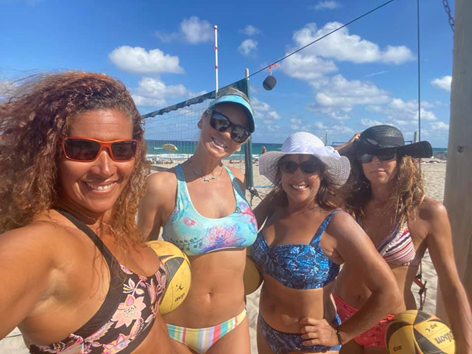As the pandemic hit the United States, I found myself working extremely long hours to help our schools move to emergency remote learning. I also spent an abundant amount of time publishing numerous articles around ways to do remote learning successfully. As a result, I was not finding the time to exercise. I was eating convenient (often unhealthy) food. I was not connecting socially. After a few months of this, I realized I needed to reset, take time for myself, and start living a healthier life.
About a year into my journey I reached my goal: I lost the COVID 19. In other words, I lost 19 pounds as well as reduced body fat, my BMI, and increased muscle.
One way I found the time to do that was by taking a break from writing in my blog and focusing my attention on studying wellness. We know wellness is important for students. It's also important for the adults who care for them. I've learned a lot over the past year.
Now that I'm back, I'm excited to share what I've learned.
Here's how I did this:
- I discovered the keys to longevity: Eat a healthy diet, exercise, get enough sleep, avoid tobacco, manage stress, stimulate your brain, and nurture a healthy social circle.
- I figured out which key opens these doors. These were: supplements, diet, exercise, health trackers, books, podcasts, and a few gadgets.
In this next series of blog posts, I'll summarize what I learned. In this post we focus on supplements.
Supplements
I always hated the idea of supplements. Wouldn't a healthy lifestyle and diet give me what I need? And, if not, how would I find what is right for me? What I found is it takes a lot of research, finding a doctor who knows about integrative and functional medicine, and knowing what areas you want to address. My areas of focus are as follows:
Immunity
Since there was a pandemic, I wanted to know what I could take to boost my immunity. I wanted to take what would keep me from getting the Corona Virus and/or help me fight it off should I become sick.
Bone, joint, muscle health
Like many people of a certain age, I suffer from some of the "itis." You know the "itis." Arthritis, bursitis, etc. This is caused, among other things, by inflamation. Since I was interested in enhancing my exercise routine, it was important I found some natural supplements to address this.
Diet / digestion
A healthy diet means healthy digestion. There are supplements that can support digestion.
Hair, skin, nails
Having beautiful hair, skin, and nails is a part of any good wellness program. There are supplements that can improve how you look on the outside.
Antihistamines
I suffer from allergies and was taking a few traditional medications for that such as Claritin and Benadryl. I learned that taken often (I was taking them daily) there could be long-term negative effects. I stopped taking them and found a healthier, natural alternative.
Supplements that aligned to my priorities and personal needs
You can check out the table below to see the six supplements that I take aligned to my areas of focus. Do NOT take these blindly. Get a physical. Go to a doctor. Make sure what you take is right for you and your needs as verified by your doctor. What I share below are the best supplements for me based on advice from experts in the field. They also have the stamp of approval from my integrative/functional medicine doctor who is based in New York City and also happens to take my insurance.











